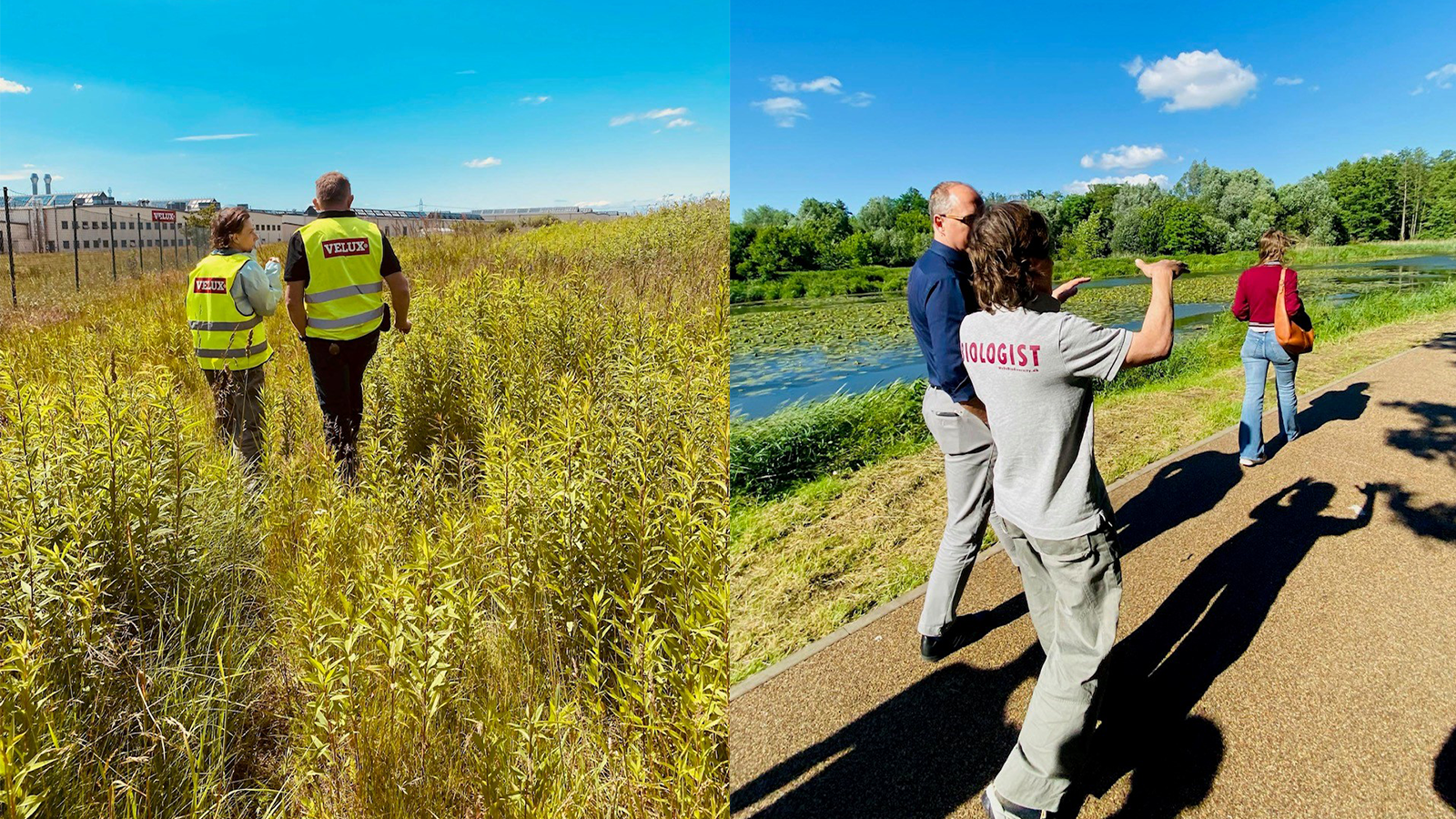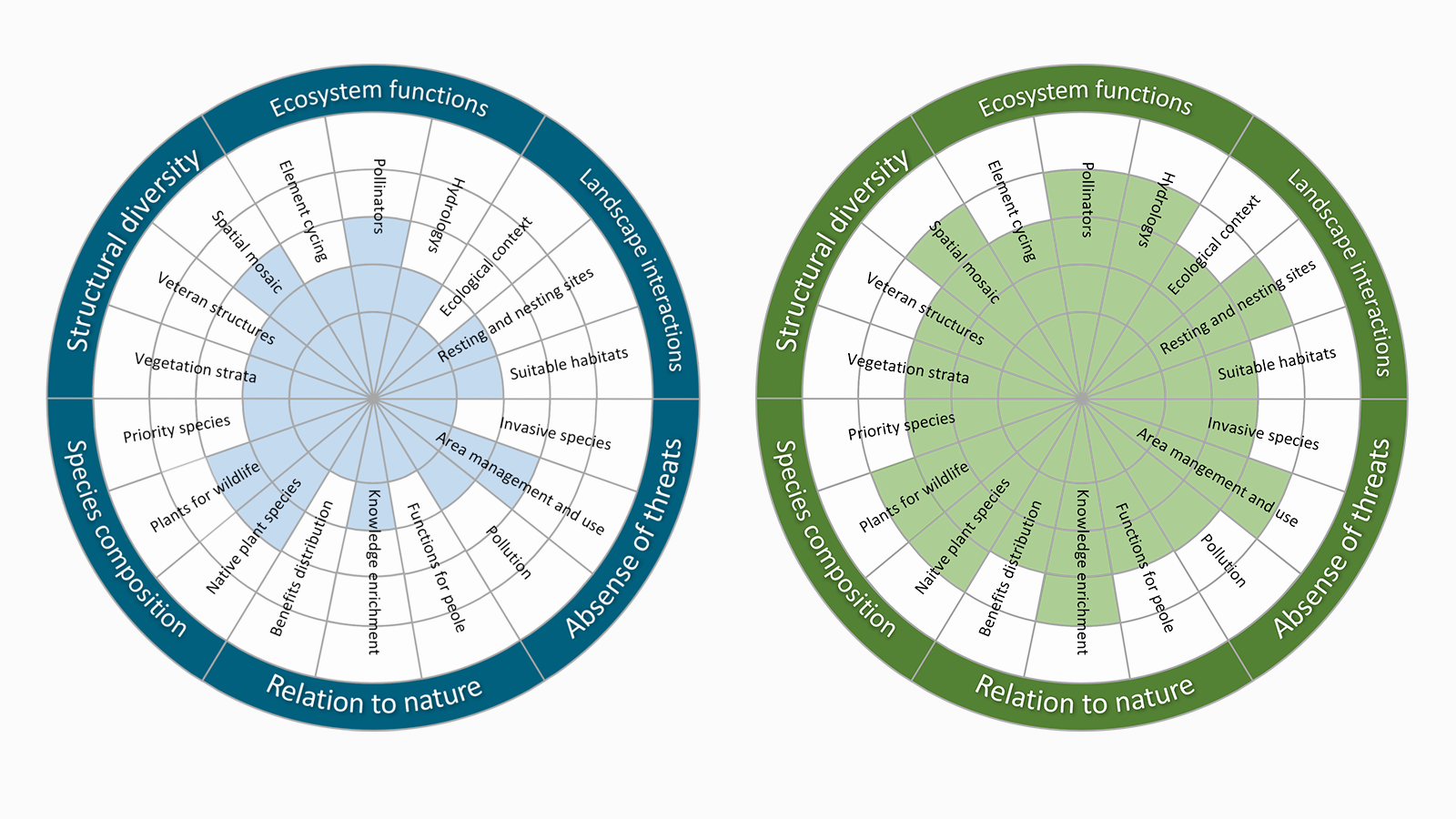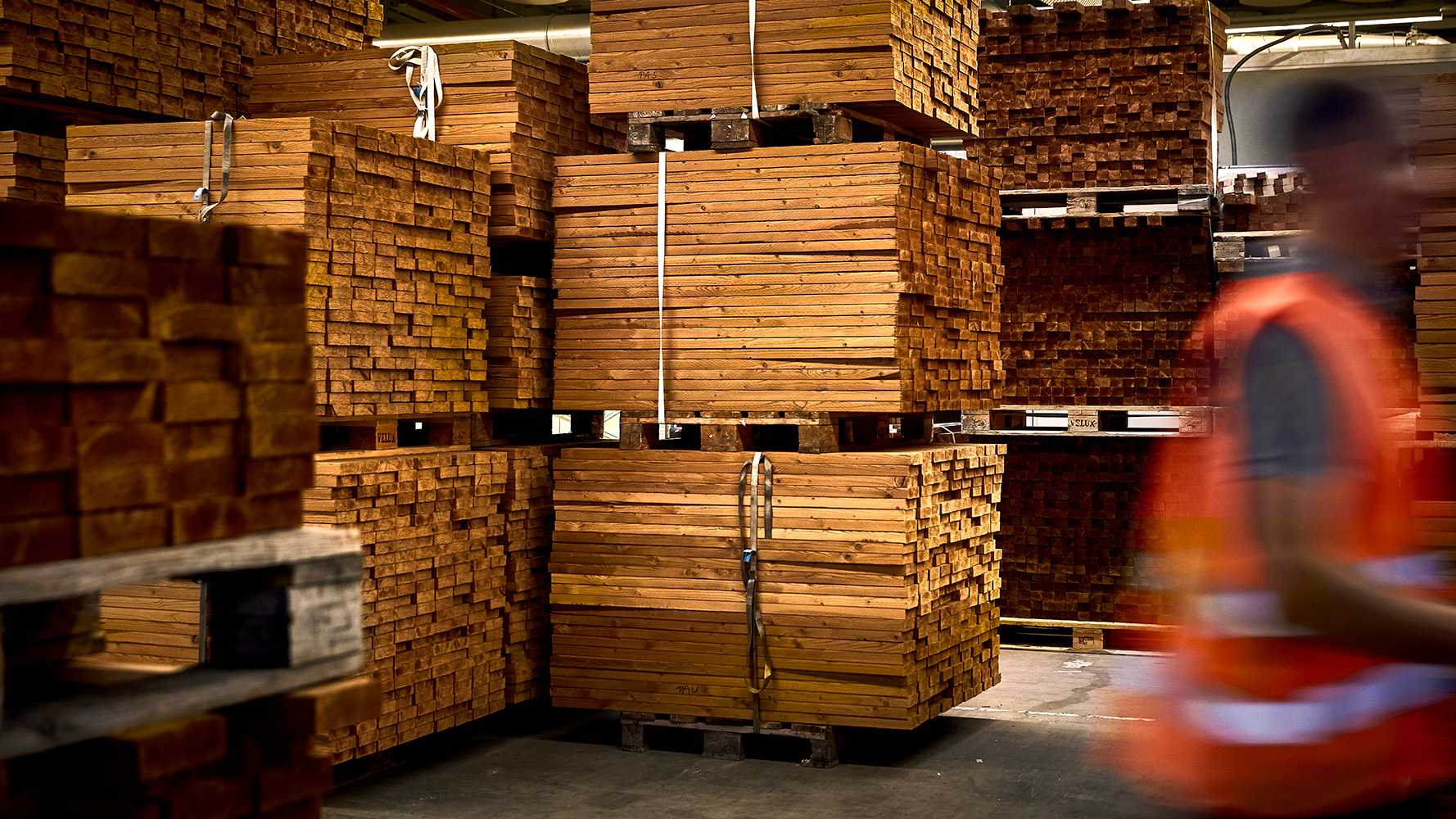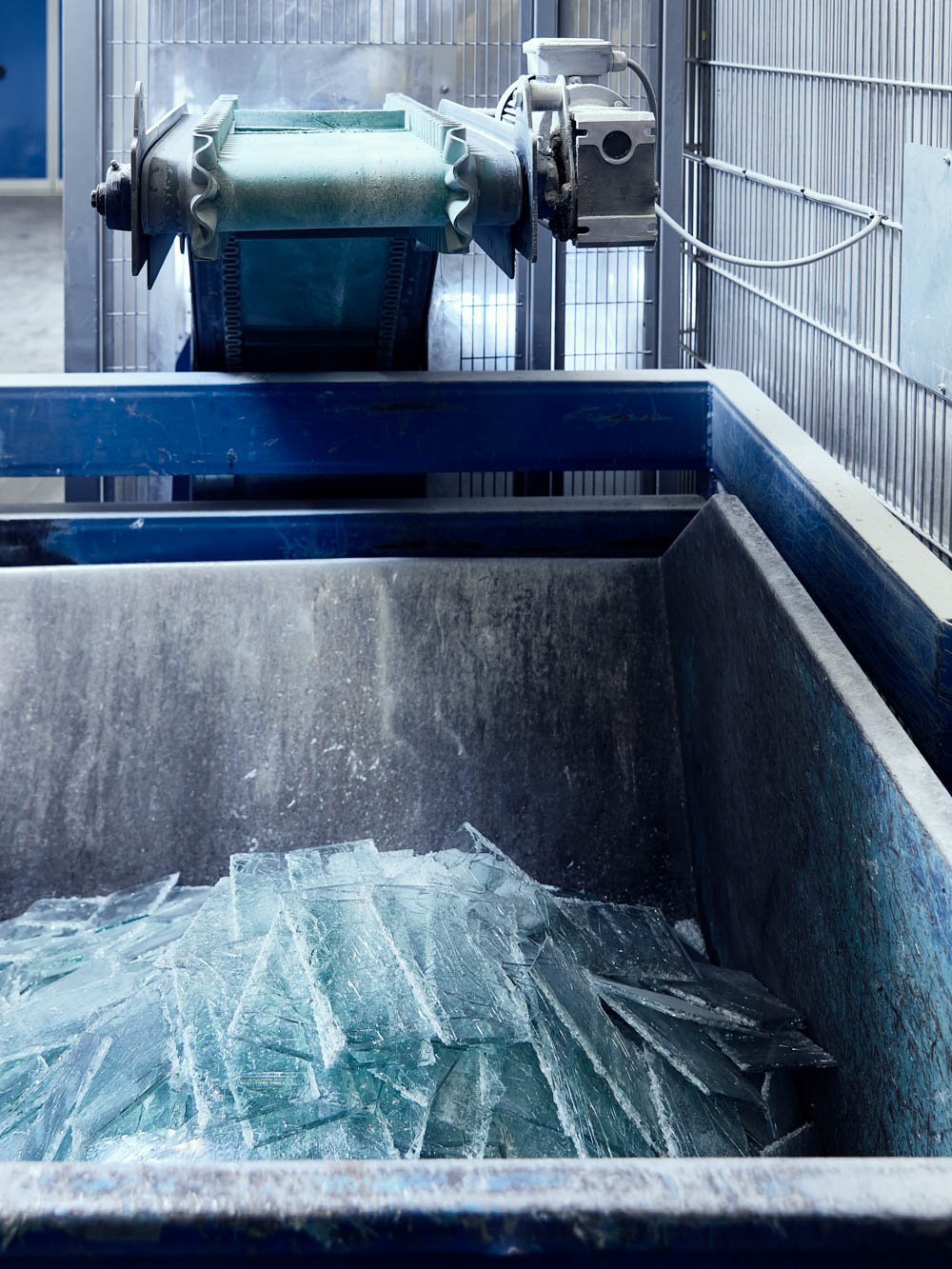Biodiversity underpins all life on Earth and is essential for critical services such as clean air, fresh water, and food security. To address the global biodiversity crisis, we are working to promote biodiversity in our operations and collaborate with our suppliers to minimise the negative impacts of our value chain.

Improving biodiversity at VELUX Group sites
In 2023, the strategic project “Support Biodiversity” was was launched. This scope of this project covers the full value chain and includes developing a method for assessing the state of biodiversity at VELUX Group sites. The method was developed and tested during 2024 on six VELUX sites located in Denmark, Poland, Italy, and Hungary.
The pilot project started with an assessment of the biodiversity at each site. This assessment is used to measure the potential for improvement and create an action plan for how each site can support and improve the outdoor areas in line with nature. Beyond enhancing the biodiversity score, the project also aims to explore how these improvements can positively influence employee well-being and create a healthier, more vibrant work environment.
 Biowheels showing biodiversity baseline levels (left) and future target levels (right) at the VELUX site in Namysłów, Poland
Biowheels showing biodiversity baseline levels (left) and future target levels (right) at the VELUX site in Namysłów, PolandThe Biodiversity Playbook
The Biodiversity Playbook includes the methodology developed for assessing the state of biodiversity on VELUX Group sites. The methodology builds on existing tools, including those developed by the Society for Ecological Restoration, and follows the approach of the Science Based Targets Network (SBTN). The standardised data sets from the baseline reports can be used for reporting under the Corporate Sustainability Reporting Directive (CSRD) and other reporting frameworks. Furthermore, all data collected in this project will enter the Global Biodiversity Initiative Framework (GBIF). This international network and data infrastructure provides open access to comprehensive biodiversity data, supporting research and policy decisions worldwide.

Working with our supply chain
Our greatest impacts and dependencies on nature are found in our supply chain from the extraction of raw materials for the creation of our products. This is by far the most complex part of our work to support biodiversity.
Following a 2024 materiality assessment, we are working to determine the impacts, risks, and opportunities across our entire value chain to identify the potential for mitigating the impact on biodiversity with suppliers.
This includes ensuring that by the end of the year, all our timber is sourced deforestation- and forest-degradation-free in compliance with the EU Regulation on Deforestation-Free Products (EUDR).

